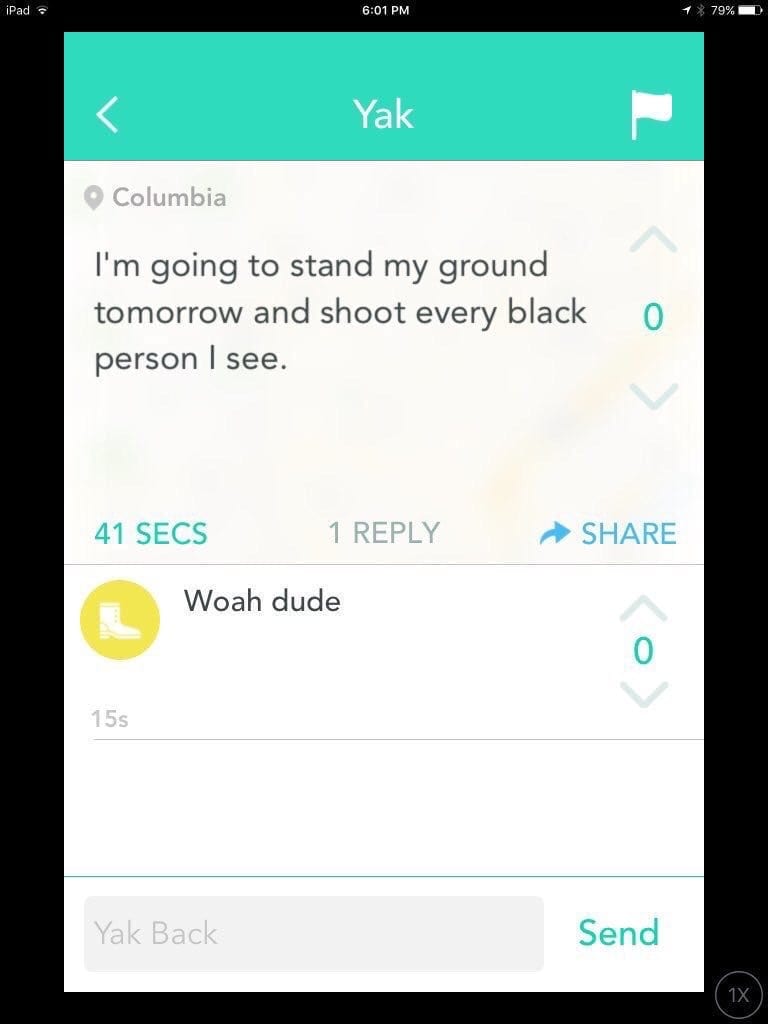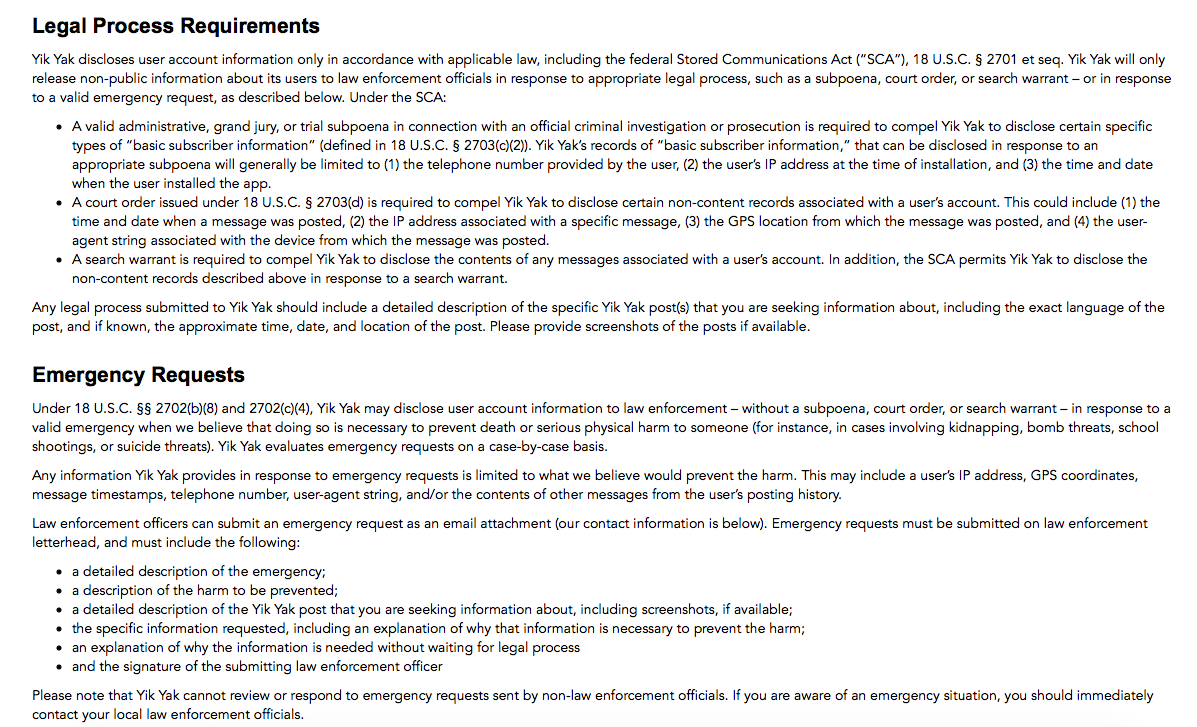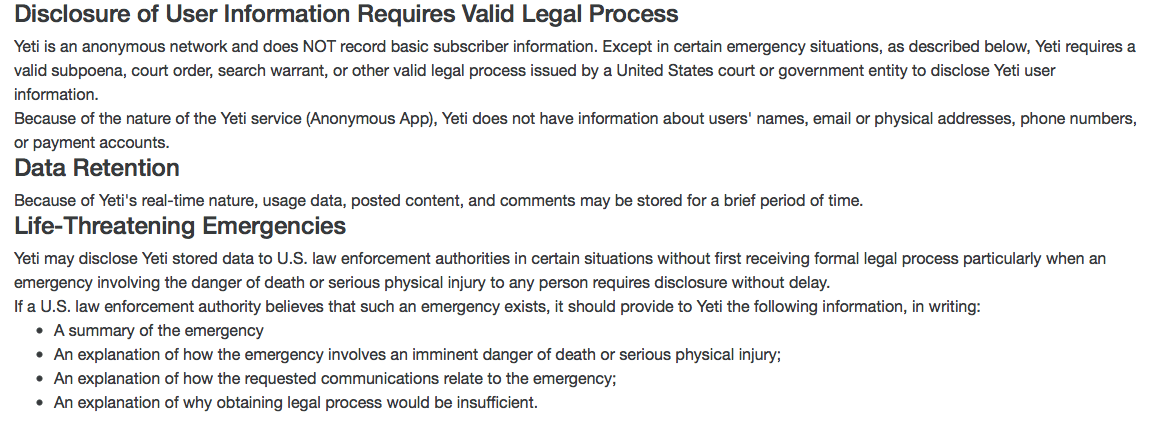By Zack Sims
Yeti is the new social networking app making waves at the University of Georgia. It provides a similar platform to Yik Yak, except it allows students to post anonymous pictures and videos instead of just text-only messages. It then compiles these posts into a campus story based on your location. Many of the posts on the app are completely fine, but as you can imagine when given this much freedom, some students abuse it. It’s quite common to see drugs and nudity while scrolling through campus stories.


The latest questionable post on the UGA campus story occurred last night when a student posted a video that included a caption that said she was drunk while driving. While we have no way of knowing if this student was actually intoxicated while operating their vehicle, it does raise an interesting question: How do posts that present a threat to the community get handled? If you don’t think these posts are that serious, let’s go back to what happened at UGA just last September.
Students evacuated buildings and police officers positioned themselves on campus looking for the slightest sign of danger. What started as a regular day at the University of Georgia completely changed after a student posted a threat on Yik Yak which said, “If you want to live, don’t be at the MLC at 12:15.” According to a press release from the University of Georgia Police Department, they received a number of reports regarding the threat shortly after it was posted. Once the threat was perceived as credible, officers were dispatched and students were asked to avoid the area.

Still not convinced? Take a look at what is happening at the University of Missouri right now. Late Tuesday night, a student posted on Yik Yak threatening to shoot every black person they saw on Wednesday. This came after both the university president and chancellor stepped down amidst protests over racial tension on campus. The University of Missouri police increased security after the post and apprehended a suspect early Wednesday morning.

Once law enforcement hears about a post like this, they must work with Yik Yak to acquire information, including the phone number, of the user. Yik Yak has requirements for when information is disclosed to law enforcement, some of which allow them to do so without a subpoena or warrant.
If law enforcement officials present a subpoena, court order, warrant or a valid emergency request then Yik Yak will provide information about the user. If a subpoena related to an ongoing investigation is presented then they provide the user’s phone number, IP address at the time of installation and the time and date the app was installed. For a court order Yik Yak gives the time and date the message was posted, IP address at the time of the post and the GPS location at the time of the post. If police present a search warrant, the information listed above can be disclosed as well.
However, Yik Yak can disclose a user’s information without any of the above documentation from law enforcement officials in response to an emergency if they feel it could save lives or prevent harm to someone. The specific situations they mention include kidnapping, bomb threats, school shooting or suicide threats. The incidents at the University of Missouri and the University of Georgia fall into this category, and officers were able to quickly acquire the users’ information and make arrests.

Yeti has very similar requirements for disclosing information to law enforcement. They will provide information about the user if the correct legal documentation is presented or in a life-threatening emergency. However, the biggest concern is they have no information about the user’s name, email or physical address, cellular subscriber information, phone number or IP address. This makes it extremely difficult on law enforcement to track down someone in situations like the ones at Georgia and Missouri.

Given the history of threats made on Yik Yak, people could be doing this on Yeti in the near future. If they do, there will be no way to acquire their location or really any information about them. This could provide a dangerous recipe for threats to be posted on Yeti.






